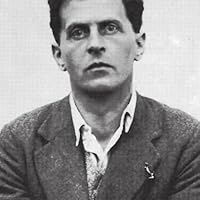Critical Thinking Quotes
Quotes tagged as "critical-thinking"
Showing 451-479 of 479
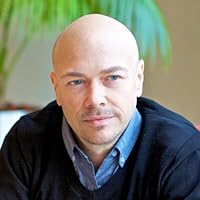
“Most people do not actually know how to think for themselves, and unfortunately that prevents them from even knowing it.”
― Voice of Reason
― Voice of Reason
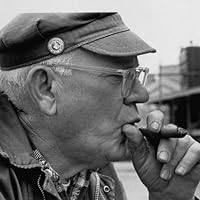
“The beginning of thought is in disagreement - not only with others but also with ourselves.”
― The Passionate State of Mind: And Other Aphorisms
― The Passionate State of Mind: And Other Aphorisms

“One of the most important things one can do in life is to brutally question every single thing you are taught.”
― Voice of Reason
― Voice of Reason

“A mode of thought does not become 'critical' simply by attributing that label to itself, but by virtue of its content.”
― Fashionable Nonsense: Postmodern Intellectuals' Abuse of Science
― Fashionable Nonsense: Postmodern Intellectuals' Abuse of Science

“When our children are old enough, and if we can afford to, we send them to college, where despite the recent proliferation of courses on 'happiness' and 'positive psychology,' the point is to acquire the skills not of positive thinking but of *critical* thinking, and critical thinking is inherently skeptical. The best students -- and in good colleges, also the most successful -- are the ones who raise sharp questions, even at the risk of making a professor momentarily uncomfortable. Whether the subject is literature or engineering, graduates should be capable of challenging authority figures, going against the views of their classmates, and defending novel points of view.”
― Bright-Sided: How the Relentless Promotion of Positive Thinking Has Undermined America
― Bright-Sided: How the Relentless Promotion of Positive Thinking Has Undermined America

“هنگام مطالعهی نظریات هر فیلسوفی٬ طرز برخورد درست نه ارادت است و نه تحقیر؛ بلکه باید در آغاز امر نسبت به وی نوعی همدلی فرضی در خود پدید آوریم تا ممکن شود که بدانیم اگر به نظریات او باور داشته باشیم چه حالی خواهیم داشت؛ و فقط در این هنگام است که باید طرز برخورد انتقادی را در خود زنده کنیم. و این طرز برخورد نیز باید تا آنجا که ممکن است مانند حالت فکری شخصی باشد که میخواهد عقایدی را که تاکنون بدانها باور داشته٬ رها کند. در این جریان٬ در مرحلهی اول حس تحقیر و در مرحلهی دوم ارادت مانع کار میشود. دو چیز را باید به یاد داشت: یکی اینکه هرکس نظریاتش به مطالعه بیارزد٬ لابد از فهم و هوش بهرهای داشته است. دیگر اینکه به هیچ وجه احتمال نمیرود آنکس در موضوعی٬ هرچه باشد٬ به حقیقت کامل و نهایی رسیده باشد. هنگامی که شخص هوشمندی نظری اظهار میکند که در نظر ما آشکارا سخیف مینماید٬ نباید بکوشیم تا ثابت کنیم آن نظر به نحوی درست است؛ بلکه باید بکوشیم تا دریابیم که آن نظ�� چگونه درست مینماید. این طرز به کار بردن تخیل تاریخی و روانی فورا دامنهی اندیشهی ما را گسترش میدهد و به ما کمک میکند تا دریابیم در عصری که دارای طرز تفکر دیگری است چگونه بسیاری از عقاید گرامی ما احمقانه مینماید.”
― A History of Western Philosophy
― A History of Western Philosophy
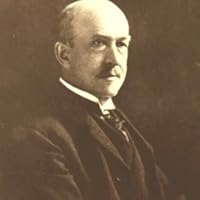
“The critical habit of thought, if usual in society, will pervade all its mores, because it is a way of taking up the problems of life. Men educated in it cannot be stampeded by stump orators ... They are slow to believe. They can hold things as possible or probable in all degrees, without certainty and without pain. They can wait for evidence and weigh evidence, uninfluenced by the emphasis or confidence with which assertions are made on one side or the other. They can resist appeals to their dearest prejudices and all kinds of cajolery. Education in the critical faculty is the only education of which it can be truly said that it makes good citizens.”
―
―
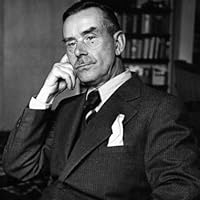
“Nein, die Schule hat keinen bestimmenden Einfluss auf meine Entwicklung gehabt. Die Schule hat von meinen besonderen Anlagen wohl instinktiv etwas gespürt, sie aber als obstinate Untauglichkeit gewertet und verworfen. Ein Lehrer drohte, zufällig nicht mir, sondern einem anderen Schüler, mit den Worten: "Ich werde dir deine Karriere schon verderben!" Am gleichen Tag las ich bei Storm den Spruch: "Was du immer kannst, zu werden, scheue Arbeit nicht und Wachen, aber hüte deine Seele vor dem Karrieremachen.”
― Über mich selbst: Autobiographische Schriften
― Über mich selbst: Autobiographische Schriften
“Cherish your doubts, for doubt is the handmaiden of truth.
Doubt is the key to the door of knowledge; it is the servant of discovery.
A belief which may not be questioned binds us to error,
for there is incompleteness and imperfection in every belief.
Doubt is the touchstone of truth; it is an acid which eats away the false.
Let no man fear for the truth, that doubt may consume it;
for doubt is a testing of belief.
The truth stands boldly and unafraid; it is not shaken by the testing;
For truth, if it be truth, arises from each testing stronger, more secure.
He that would silence doubt is filled with fear;
the house of his spirit is built on shifting sands.
But he that fears no doubt, and knows its use, is founded on a rock.
He shall walk in the light of growing knowledge;
the work of his hands shall endure.
Therefore let us not fear doubt, but let us rejoice in its help:
It is to the wise as a staff to the blind; doubt is the handmaiden of truth.”
―
Doubt is the key to the door of knowledge; it is the servant of discovery.
A belief which may not be questioned binds us to error,
for there is incompleteness and imperfection in every belief.
Doubt is the touchstone of truth; it is an acid which eats away the false.
Let no man fear for the truth, that doubt may consume it;
for doubt is a testing of belief.
The truth stands boldly and unafraid; it is not shaken by the testing;
For truth, if it be truth, arises from each testing stronger, more secure.
He that would silence doubt is filled with fear;
the house of his spirit is built on shifting sands.
But he that fears no doubt, and knows its use, is founded on a rock.
He shall walk in the light of growing knowledge;
the work of his hands shall endure.
Therefore let us not fear doubt, but let us rejoice in its help:
It is to the wise as a staff to the blind; doubt is the handmaiden of truth.”
―

“If 'truth' is an 'unveiled reality,' then my truth may not be your truth yet!”
― A Cup of Hope for the Day
― A Cup of Hope for the Day

“One of the chief values reading history, this is the author, is its capacity to "provoke renegade thoughts".”
―
―
“Creating consent (hegemony) is never a simple act. It is rather the result of the social structures and the cultural patterns that dictates for each group its behavior and for each institutions its practices.”
―
―
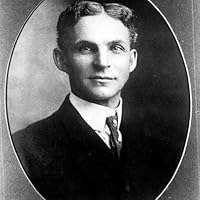
“(...)the question of the Jews has come to the fore, but like other questions which lend themselves to prejudice, efforts will be made to hush it up as impolitic for open discussion. If, however, experience has taught us anything it is that questions thus suppressed will sooner or later break out in undesirable and unprofitable forms.”
― The International Jew - The World’s Foremost Problem
― The International Jew - The World’s Foremost Problem

“Thought assists memory in enabling it to order the material it has assembled. So that in a systematically ordered memory every idea is individually followed by all conclusions it entails.”
― The Manuscript Found in Saragossa
― The Manuscript Found in Saragossa
“Policy makers and politicians want more STEM; educators want more STEAM. Both, in ways that are eerily similar, are engaging in social engineering to support an ideology. At the macro-level, in both worlds, it’s all about teaching a point of view, rather than teaching students to learn. We seem hell bent on an arbitrarily linear approach to engineering a “useful” or job-securing education, from which we continue to get mixed results.”
―
―
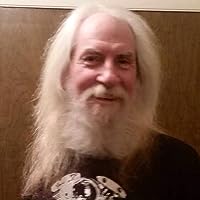
“Critical thinking is a lost 'art' that has yet to be found, if it is even being looked for".”
― Apologia: A Collection of Christian Essays
― Apologia: A Collection of Christian Essays
“a large-scale policy mandating a mono-cultural curriculum – focused on teaching to the job may very well create a society of trained workers; but it will fail at creating a learning society. If we want to maintain a position of being inventive and vibrant and robust, we need an inventive, vibrant and robust educational philosophy. Just as teaching to the test distorts the learning process in ways that are often directly in opposition to the desired outcomes of the test, a teaching policy aimed at jobs alone may very well end up destroying jobs, or at the very least compromising a truly innovative culture.”
―
―
“If everyone could learn how to read books properly and how to use them as effective tools for daily living, the facilities of colleges could easily go out of existence without any loss to society.' -From a speech by the president of Mount Holyoke College, as reported in the Philadelphia Public Ledger, May 13, 1938”
― How to Improve Your Personality by Reading
― How to Improve Your Personality by Reading
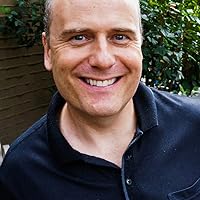
“A man goes to a foreign country and kills somebody who's not aggressing against him; in a Hawaiian shirt he's a criminal, in a green costume he's a hero who gets a parade and a pension. So that, as a culture, we remain in a state of moral insanity. To point out these contradictions to people in society is to be labeled insane. This is how insane society remains, that anybody who points out logical opposites in the most essential human topic of ethics, is considered to be insane.”
―
―

“Vi har noen rettigheter, plikter og verdier vi tar som en selvfølge. Men også selvfølgelighetene må begrunnes og forsvares. De oppleste og vedtatte sannhetene har godt av å bli utfordret, ikke minst for å gi oss anledning til å lese dem opp og vedta dem på nytt.”
― Ytringsfrihet: 10 essays
― Ytringsfrihet: 10 essays
“[W]e have an automatic tendency to pay attention to or seek out information that is in agreement with (confirms) our preconceptions, and to ignore, distort or avoid information that contradicts (disconfirms) our preconceptions, a tendency that is called the confirmation bias. The confirmation bias serves to maintain and strengthen the beliefs that we already hold by causing us to automatically (that is, without being aware that we are doing so) perceive and remember experiences that confirm these beliefs, and to ignore or reinterpret those that disconfirm them. Because we tend to seek out only confirming evidence, our beliefs over time become so well confirmed in our minds that we come to think of them as “obviously true." In order to avoid the confirmation bias, we must force ourselves to look for evidence that disconfirms our beliefs.”
―
―
“La scuola può educare allo spirito del dialogo non solo in quanto ponga la riflessione su di esso al centro del suo contenuto didattico, ma anche e soprattutto attraverso una diversa via, che le è peculiare. Nella scuola meritevole di questo nome non soltanto si studia la civiltà del dialogo. La si mette in atto: e quindi ci si allena progressivamente ad essa. Il cattivo maestro insegna predicando: il buon maestro conversa e discute con i suoi scolari, perfino quando spiega le cose meno controvertibili, come certe lezioni elementari di aritmetica o di grammatica.”
― Logo e dialogo; saggio sullo spirito critico e sulla libertà di coscienza
― Logo e dialogo; saggio sullo spirito critico e sulla libertà di coscienza
“When students learn to wrestle with questions about purpose, audience, and genre, they develop a conceptual view of writing that has lifelong usefulness in any communicative context.”
― Engaging Ideas: The Professor's Guide to Integrating Writing, Critical Thinking, and Active Learning in the Classroom
― Engaging Ideas: The Professor's Guide to Integrating Writing, Critical Thinking, and Active Learning in the Classroom
“As students cross the threshold from outside to insider, they also cross the threshold from superficial learning motivated by grades to deep learning motivated by engagement with questions. Their transformation entails an awakening--even, perhaps, a falling in love.”
― Engaging Ideas: The Professor's Guide to Integrating Writing, Critical Thinking, and Active Learning in the Classroom
― Engaging Ideas: The Professor's Guide to Integrating Writing, Critical Thinking, and Active Learning in the Classroom
All Quotes
|
My Quotes
|
Add A Quote
Browse By Tag
- Love Quotes 98k
- Life Quotes 76.5k
- Inspirational Quotes 73.5k
- Humor Quotes 44k
- Philosophy Quotes 30k
- Inspirational Quotes Quotes 27k
- God Quotes 26.5k
- Truth Quotes 24k
- Wisdom Quotes 23.5k
- Romance Quotes 23.5k
- Poetry Quotes 22.5k
- Death Quotes 20k
- Life Lessons Quotes 20k
- Happiness Quotes 19k
- Quotes Quotes 18k
- Hope Quotes 18k
- Faith Quotes 18k
- Inspiration Quotes 17k
- Spirituality Quotes 15k
- Religion Quotes 15k
- Motivational Quotes 15k
- Writing Quotes 15k
- Relationships Quotes 14.5k
- Life Quotes Quotes 14.5k
- Love Quotes Quotes 14k
- Success Quotes 13.5k
- Time Quotes 12.5k
- Motivation Quotes 12.5k
- Science Quotes 11.5k
- Motivational Quotes Quotes 11.5k


